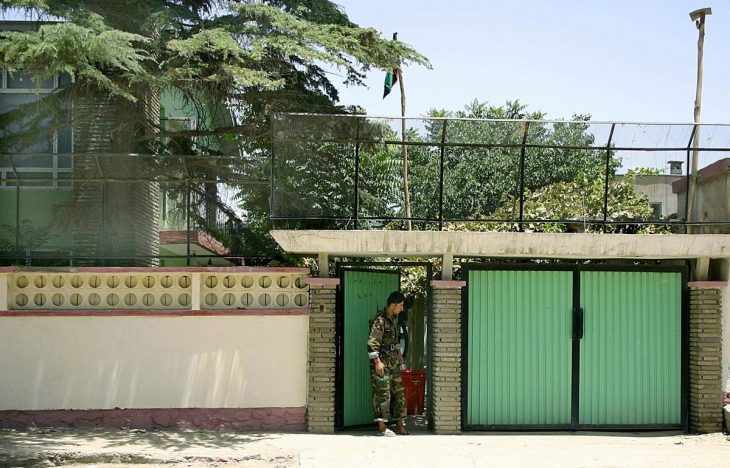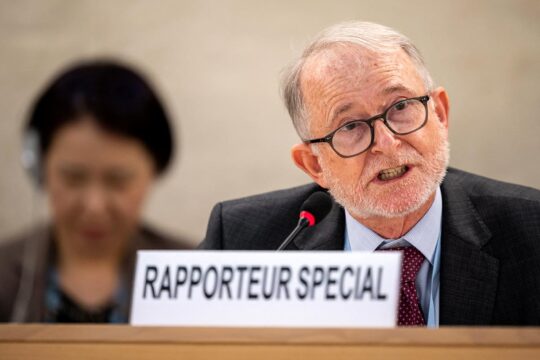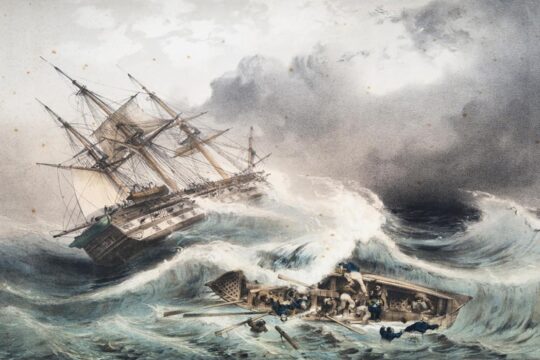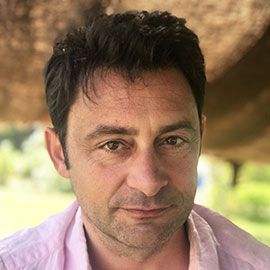JUSTICEINFO.NET: Was the decision to reject the prosecutor’s request for investigation a surprise to you?
JULIAN ELDERFIELD: Yes. The Chamber took nearly 18 months to get back to the office of the prosecutor (OTP) on this decision, which is already an exceptional period of time. It was always going to be a more difficult decision than for previous similar requests. Yet, when the decision came out, it was a surprise. And that was because of the strength of the information presented in the request on all sides: the widespread crimes allegedly committed by the Taliban and affiliated armed forces, the alleged torture in detention by the Afghan government, and the information about crimes allegedly committed by the CIA in Afghanistan and elsewhere. The OTP’s interpretation of the “interest of justice”, which is the final limb of the provision in the Rome Statute that must be satisfied to go ahead with an investigation, was strict, minimalist. I was confident that the request would be granted.
The information about alleged crimes by the CIA was very strong.
Were you equally confident that it could lead to effective trials?
Let’s say first that the information about alleged crimes by the CIA was very strong. Torture in U.S. detention has been acknowledged by the U.S. Senate Select Committee on Intelligence in its detailed report in 2014 and by the former U.S. President Barack Obama. Crimes alleged to have been committed by the Taliban are equally well documented by a lot of U.N. and human rights reports. And indeed, the Chamber itself accepted that the information was sufficient.
But were you conscious of the difficulties to investigate?
Certainly. People were asking serious questions about the OTP’s ability to investigate and eventually to prosecute. The pre-trial chamber picked up on some of those difficulties and ultimately that was the reasoning behind refusing the request. Those difficulties include the near impossibility, at this stage, of conducting investigations in the country due to the security situation. There is also the likely resistance to ICC involvement from both the Taliban and the Afghan government, and from the regional and international actors who are involved in the ongoing peace process in Afghanistan. On the U.S. side, the government has strongly condemned any external investigation into the acts of its forces, so there would quite clearly be no cooperation on that side and no support in terms of prospects of arrests, at least with the current administration. Who knows if that pressure would undermine the willingness of allied states to the U.S. to cooperate in the event of an arrest warrant.
The prosecutor’s position was: this is going to be difficult, but we have to try. The court was founded in the belief it would stand up to powerful forces and to act as a court of last resort when prosecutions at the national level failed.
This sounds like an impossible investigation. Why ask for it?
My take on the office of the prosecutor’s position was: this is going to be difficult, but we have to try. We have to do this for the victims, and also because the court was founded in the belief it would stand up to powerful forces and to act as a court of last resort when prosecutions at the national level failed. That was how I believe the OTP interpreted its mandate and that was the reason for the request.
Was the pre-trial chamber more pragmatic?
Indeed. It took almost the opposite view, with a logistical and in some ways strategic decision that seemed to be founded on the short-term viability of the court. What it said was: due to financial, logistical, practical considerations including the prospects of cooperation, this investigation is likely not to succeed, and so we’re not going to allow it to proceed. It’s possible, strictly legally, that this sort of reasoning falls within the ‘interest of justice’ test in the Rome Statute, but it is certainly an innovative interpretation and it’s a widening of the scope of the interpretation by the office of the prosecutor and by many of the academics who comment on the work of the ICC. I think in this case it was also the wrong call. Although the court would face the prospect of little cooperation and of the U.S. following through on its threats and hostility, through innovative investigative activities and behind-the-scenes diplomacy there was a path to success here for the OTP, and for the Court. There are many possible cooperation partners, and there are many ways of investigating from outside, which the OTP has done and is doing in other situations. And cooperation is a fluid concept – today you don’t have it, tomorrow you do. The pre-trial chamber obviously decided that it wasn’t worth going down this road, though, and refused the request.
Is it the result of recent pressure from the U.S.?
I think the answer has to be: in part, yes. Although it’s not explicit in the decision it makes sense that given the reference to prospects of cooperation they were referring, among other things, to the OTP’s ability to obtain cooperation from the U.S. and allied states with respect to the CIA investigation.
It’s problematic in the sense that it encourages the notion that justice can be sacrificed in difficult cases.
Ultimately, the pre-trial chamber may be entitled to make that interpretation but again it’s problematic in the sense that it encourages the notion that justice can be sacrificed in difficult cases. That’s not an attractive legacy [for] any court. It’s essentially sending the message that if alleged perpetrators of crimes cover up or deny or delay justice, they will get away with it. And for the international community, which set up a court to do exactly the opposite, it sends a message at best contradictory and at worst deeply problematic.
Can it be seen as a lesson learned from previous cases, such as in Kenya, where judges knew cooperation was going to be difficult, went for it, and eventually saw the case collapse?
It’s a good point. The difficulties the office of the prosecutor and the court have had in the past with cases in which no cooperation has been obtained could have informed the pre-trial chamber’s decision. There is no reference to that in the decision, but it makes sense. In the latter stages of the Kenyan cases, all cooperation dried up. Without it, neither was able to proceed to the judgment stage. We’ve also seen it in two situations referred by the U.N. Security Council – Libya and Sudan. With no state cooperation those cases haven’t been able to proceed.
We’ve seen at other tribunals where cooperation hasn’t been obtained – for example at the International Criminal Tribunal for Rwanda, where the Rwandan government essentially prevented it from investigating the Rwandan Patriotic Front [a victorious army who’s been in power in Rwanda since 1994] – that cases didn’t proceed. On the flip side, we saw at the International Criminal Tribunal for the former Yugoslavia, when there was cooperation from the former Yugoslavian states and from powerful actors, a court that succeeded.
This decision may be a reorientation of the ICC’s perspective on where it needs to go from here and accepting the realities of international justice and try to move forward as best as it can – albeit in my opinion in a flawed way.
So, again, cooperation seems to play an important role in international courts and tribunals and perhaps this decision is just the chamber finally saying: look, we didn’t create the conditions, we are accepting them. And this decision may be a reorientation of the ICC’s perspective on where it needs to go from here and accepting the realities of international justice and try to move forward as best as it can – albeit in my opinion in a flawed way.
Going back to Afghanistan, what are the prospects for appeal?
I expect the OTP to seek leave to appeal this decision. If granted, it could take up to a year. The appeals chamber may even want to solicit the views of a broader range of actors, victims but also states. So, it will be interesting to follow that process and ultimately it will be up to the appeal chamber to decide or to impose its view of the future of the Court. It could reverse the decision and could impose limits on the investigation as it sees fit, or it could send it back to the pre-trial chamber for a fresh look. It will be a hotly contested issue and one that will be closely followed by the victims, by NGOs, academics, and obviously states, because of the political implications.
If the ICC closes its doors to Afghanistan’s victims, what are their remaining options for justice?
For me, this is the hardest part of the decision. Unfortunately, if the ICC closes its doors, for Afghanistan victims it’s a difficult route to justice. Maybe we’ll see one materialize through an eventual peace agreement that includes a mechanism for accountability and reparations. There being, let’s say, not a long history of meaningful justice for victims in similar post-conflict peace agreements. On the U.S. side, again and most disappointedly we may see a situation where alleged criminal activity under international law that has been acknowledged by the U.S. government and documented by other courts, governments, NGOs and victims go unprosecuted. The U.S. government has taken a decision not to prosecute former senior officials of the CIA and of the executive branch of the government for acts committed during their intervention in Afghanistan. So, the hundred-odd victims of alleged torture at the hands of the CIA in Afghanistan and in black sites around the world may never see justice done.







